In Uganda, a lack of education and vocational skills has been passed down from older generations to younger ones. The youth unemployment rate is thirteen percent, one of the highest in sub-Saharan Africa that constitutes a whopping 4.4 million young people actively seeking work who are unemployed. Other reports show that only a quarter of the workforce has a skill or essential trade that is needed by the labor market. With so many young people, a large 1 disparity in education, and little hope for their future careers, a large number of Ugandan youth have no choice but to accept informal or illegal employment.
Of these vulnerable youths, more than two-thirds were found to receive extremely low to zero earnings and faced dangerous work conditions. Universal education programs are currently not enough to give Ugandan youths and young adults the opportunity they need to counteract the generational poverty issues in the country. While measures may be taken to better the universal education programs for the next set of Ugandan toddlers and babies, there are youth and young people who are falling through the cracks. To counteract this reality, Ugandan rural youth need to be educated in health education and vocational skills that will open the door to legitimate jobs and a different, brighter future.
Various educational tools for children are available in Uganda which vary in content and cost. There exist websites in Uganda that offer tutors, eBooks, tutorial videos, notes, quizzes, career guidance, and other services. Many of these are free to use but to access premium features and content users must pay additional fees; thus, they are not suitable alternatives for frugal education. Also, many of these services rely on Ugandans having internet access, but the reality in rural Uganda is that internet access is dismal and spotty. A child’s lack of internet access should not prevent them from achieving their full potential.
Our solution is an educational system that includes a Raspberry Pi computer and an Android application. Rose Academies is a non-profit organization that operates in the United States as well as in Uganda and other African countries. It is working with high schoolers in the U.S. to record videos that teach vocational skills like Microsoft Word and Excel with the intended audience of rural Ugandans. Once videos are prepared, video creators will upload the media to 2 YouLearn Google Drive. While these videos are under production, Rose Academies has also provided a slue of PDF resources and videos that educate the population on disease prevention, life skills, feminine health, sanitation, and American Sign Language (ASL).
Once the media content is on Google Drive, a Raspberry Pi (RPi) will pull the Drive contents. The RPi will act as a local database to store the videos and PDF resources online and act as a server to stream the media onto tablets when requested. Our system will also consist of an application on tablets that will display all the videos and PDFs available. Our system will solve the major problem of the existing solutions: it will not require pre-existing Internet access to stream the media content. The media content will persist on the RPi and be streamable by any tablet in the nearby vicinity. Internet will only be occasionally necessary to download any newly uploaded content from Google Drive to the RPi. Our solution aims to empower the rural poor with knowledge and skills that will help communities and children live and thrive.
Most of the existing solutions for video streaming require internet access, for example, YouTube and Khan Academy. Unlike those websites, our system will persist online allowing for minimal-range streaming. One alternative solution is RACHEL, a plug-and-play server that stores educational websites that are streamable online on a local connection. RACHEL is a tool for 53 percent of the world without an internet connection to access the best free educational resources (6). RACHEL models range from 170 dollars to 500 dollars. However, the creators also have an open-source tool, OER2Go, which is a collection of educational websites repackaged for download and online use. But for the purposes of this educational system, Rose Academies wants a minimalized application that is easy to understand and deploy in rural communities. That is YouLearn.
Our system consists of a solar-powered battery, a Raspberry Pi, and a tablet with our application YouLearn installed on it. The solar-powered battery is used to charge the tablet and serves as a power source for the raspberry pi. The Raspberry Pi serves as a local database that stores the files and videos supplied by Rose Academies and a local server enables the streaming of files and videos online to the tablets through our application called YouLearn.
For our system, we decided to use a Raspberry Pi due to its versatility, price, size, and power usage. A Raspberry Pi is a computer that can be used for a variety of things due to its versatility as a system. The possibilities are endless. Because of its multifaceted nature, we were able to use Raspberry Pi as a local server and local database. We wanted to make our system as affordable as possible so it would be scalable for Rose Academies.
The Raspberry Pi we chose for our system is only about sixty dollars. Since it will be used with multiple tablets and multiple students, the cost is almost negligible. Since our system is going to be deployed in Uganda, we wanted something that could be easily carried onto an airplane. Since the Raspberry Pi is 3.5 by 2.3 by 0.76 inches, it is a very portable option. Because we developed this system for communities in low-technology settings, we wanted our system to require as little power as possible. A Raspberry Pi only requires 3 amps power supply which can be produced from a solar-powered battery easily.
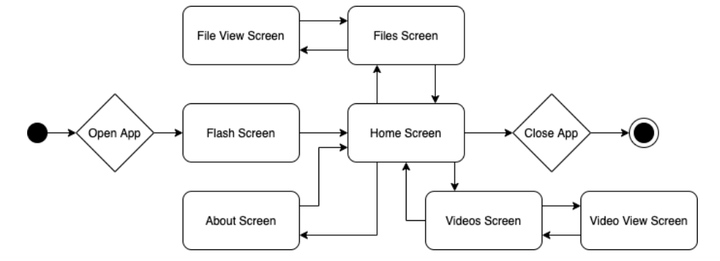
One of the main goals of the project was to make our system very simple and easy to use. User interface design and user experience are very important elements to consider when developing an application because if an application is not easy to understand, a user will get frustrated with it and will not want to use it. Since we are developing an application for people who are not as familiar or comfortable with technology as we are, we wanted our application to be as simple and intuitive as possible so it would be accessible to all users of all backgrounds. For this reason, we decided to utilize a minimalist design using a small color palette and a simple font when developing YouLearn. Since we did not want to overwhelm the users with unfamiliarities, we decided to organize YouLearn by type and topic. Since items being organized by type and topic is fairly common, we believed it would make our application more approachable to first-time users.
To conclude, we will address the obstacles we encountered, the lessons we learned, and potential next steps for the project. Throughout this project, our team faced a variety of obstacles, some within and some beyond our control. One obstacle we encountered was underestimating the difficulty of working with new technologies like the RPi. Our solution was to start early, thoroughly researching and reading the documentation on RPi, Wi-Fi access points, and connecting to a Google Drive. Debugging was also a challenge we faced. There may have been days at a time when we were stuck on one small problem. But we talked about these issues as a team, helping each other with fixes. Often, after sleeping on the problem we could come up with a simple fix. A final obstacle we faced, which no one expected or could control, was the spread of Coronavirus-19 around the world. Consequently, our deployment trip to Uganda was canceled which greatly altered our testing plan. Our solution was to be flexible, have our friends and family test our system, and get input from stakeholders on final uncertainties.
Throughout the development of our project, the design requirements and system constraints changed. Our entire project shifted from focusing on vocational training resources to health and safety information. But that is simply a part of software development. The customer has the right to redirect the course of a project and it is our jobs as software developers to cope with those changes and alter the project accordingly. Our team also learned a great deal about working in engineering teams. When working with a group of people it is crucial to heavily document the tasks you performed. This way, your teammates can replicate your procedure to 21 troubleshoot or recreate what you did. This also brings up communication. Our weekly team meetings were very useful throughout the development of this project because we could solve issues together, hold each other accountable, and ensure that the project was progressing. A final lesson we learned in the context of software engineering was the importance of incremental change and version control. As individuals and as a team, we learned to change one thing at a time, test it, and save the progress we had made. Before we learned this lesson, there was a lot of lost work and accidents that prolonged development.
Our system meets all of the functional requirements, non-functional requirements, and constraints we set out to accomplish. Nonetheless, there are steps that can be taken to enhance and further this project. First, we recommend the React Native application be converted to a dynamic application that can generate buttons and links based on the RPi file system. Second, deployment testing or stress testing could still reveal issues with our system relating to power, performance, and stress. A final step would be making the RPi set up a script to make the system more scalable. Currently, each RPi in the system needs to be manually set up, a process that takes many hours. Rose Academies would prefer if the RPis could be set up automatically with all of the settings and features needed for the YouLearn system. These steps would make YouLearn an educational system Rose Academies can deploy in all of its partner communities.
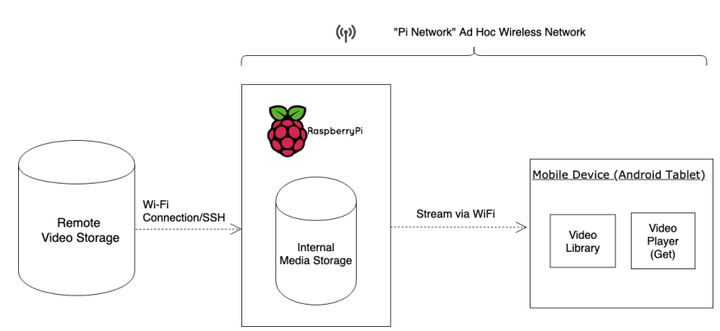

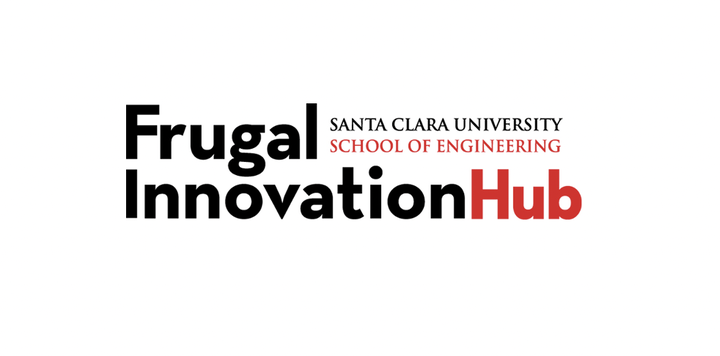

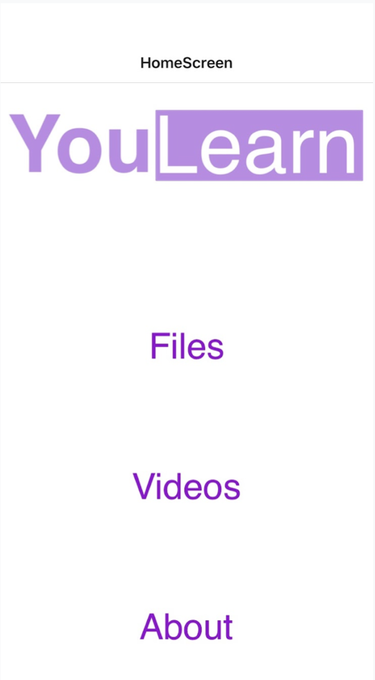
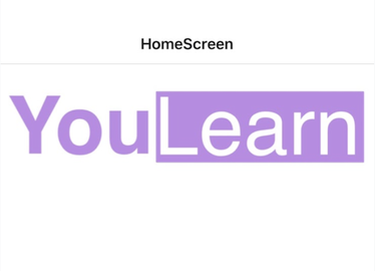


















 Loading ...
Loading ...